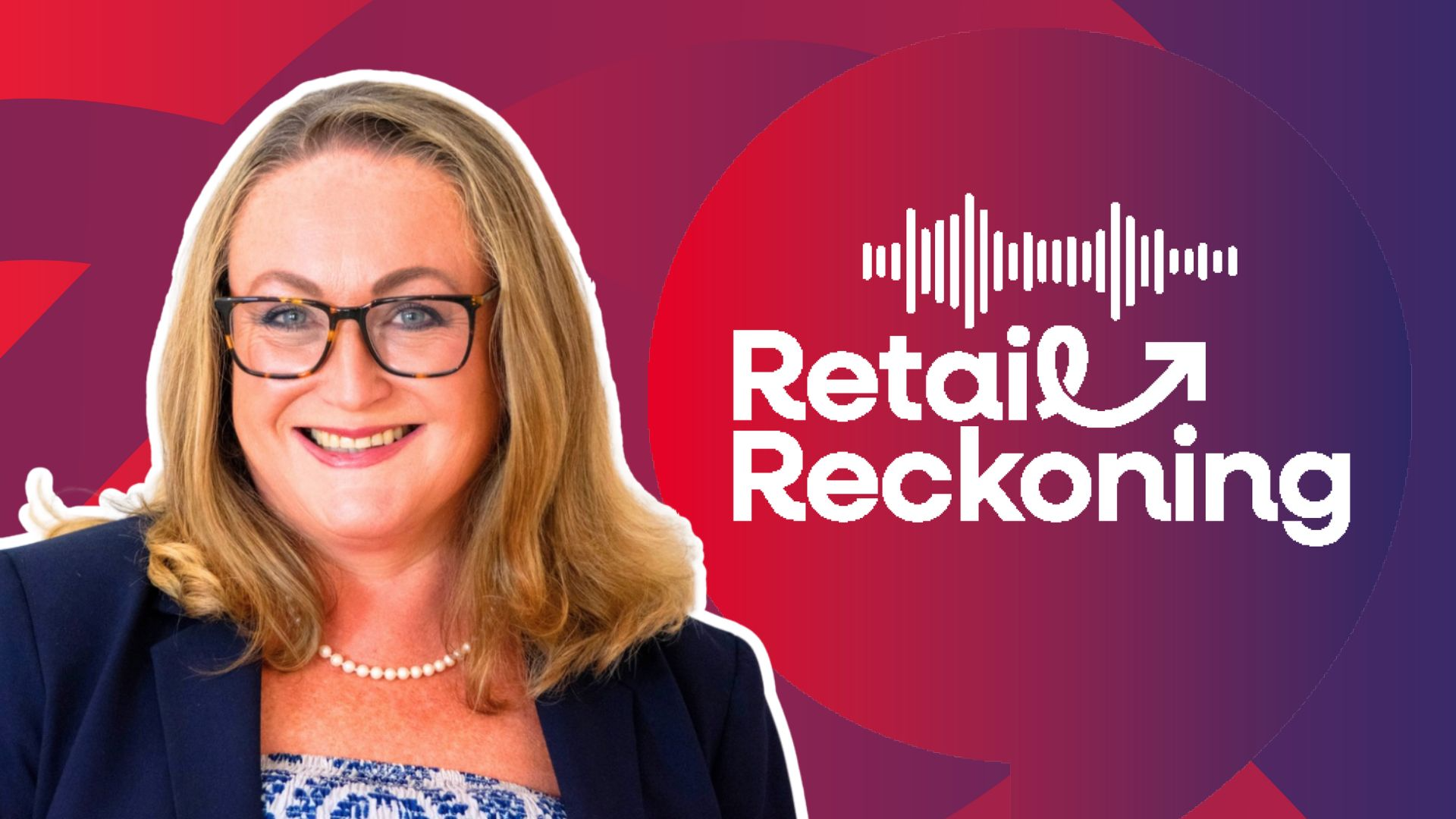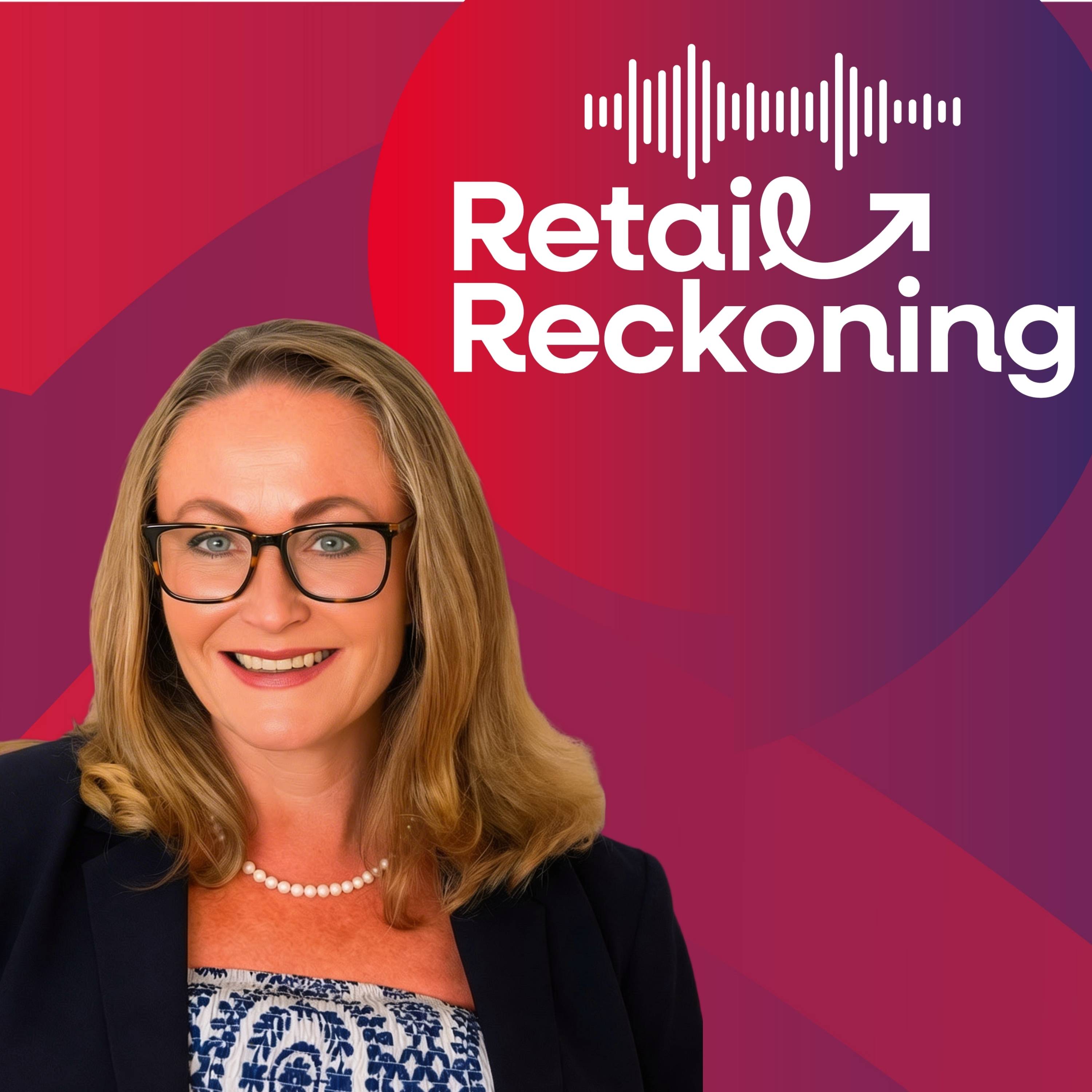bonus
Empty Retail Units Plague Rugby (Clare guests on BBC CWR)
The current state of Rugby town centre is alarming, as it is reported that one in four shops remain vacant, a statistic that underscores the pressing need for strategic intervention. In this bonus episode, Clare Bailey, the Retail Champion, provides insights to BBC CWR into the implications of this phenomenon and the potential measures that local authorities, such as Rugby Borough Council, can enact to revitalise the area.
The council's proposal to auction off leases on long-empty retail units is a significant step, albeit one that raises concerns regarding its effectiveness in addressing the underlying issues of demand and viability for new businesses.
Clare listens to the BBC's local radio report and then delves into the perspectives of local residents and business owners who express their discontent with the current retail landscape, highlighting the urgent desire for diverse and appealing shops to reinvigorate the high street. As we explore these issues, we aim to understand the complexities of retail decline in Rugby and consider what solutions may truly foster a thriving economic environment once again.
Takeaways:
- The town of Rugby is experiencing a significant decline in its high street, with one in four shops currently vacant, reflecting broader economic challenges.
- Local authorities, such as Rugby Borough Council, are exploring innovative measures to address the issue of empty retail units, including auctioning leases for abandoned properties.
- Residents express a strong desire for diverse retail options beyond the current prevalence of cafes and barbershops to revitalize the town centre.
- Experts suggest that the transformation of vacant retail spaces into residential units could bolster foot traffic and support remaining businesses in Rugby's high street.
- The high street's struggles are exacerbated by shifting consumer behaviors, with an increasing preference for online shopping over traditional retail experiences.
- To foster a vibrant town centre, a collaborative effort involving planning reforms and business support tailored to unique local needs is imperative.
Transcript
What's your local high street like?
Speaker A:We've been hearing today about rugby.
Speaker A:That was on the breakfast show this morning with Phil.
Speaker A:The council there has plans for empty shops.
Speaker A:Apparently one in four shops is lying empty in Rugby town centre.
Speaker A:I tell you what, you know, talking, changing landscapes.
Speaker A:Rugby town centre is sort of right there in microcosm.
Speaker A:What has happened over the last few years has been astonishing.
Speaker A:Not just obviously the big shift to online shopping.
Speaker A:More of us are doing that than going to the high street.
Speaker A:But also it's had the opening up of the Leicester Road retail place and also the great big development up at Elliot Field.
Speaker A:And the town centre is struggling.
Speaker A:One in four units empty.
Speaker A:So the council is hoping to be one of the first in the country to use new powers to try and tackle it.
Speaker A:Basically auction off leases on privately owned retail units that are left vacant.
Speaker A:To explain more about it here is BBC CWR's Ushman Mystery.
Speaker B:It's a shell of a town.
Speaker A:That's all it is.
Speaker B:It's a shell.
Speaker A:I think it's terrible for what it used to be.
Speaker C:As you can see, it's dead and it's dead most of the time.
Speaker D:I think it's very sad.
Speaker D:It used to be a really thriving town.
Speaker D:It's disgusting, absolutely disgusting.
Speaker E:That's how shoppers in Rugby town centre are now describing the state of it, thanks to the number of empty shops and most want the council to do something about it like and stay them.
Speaker C:There's nothing here.
Speaker C:So I go to Elliot's Field, which was the death knell obviously of the center here.
Speaker C:Otherwise it's.
Speaker C:It's probably online.
Speaker C:But I do prefer shopping and seeing the real thing.
Speaker E:And there's nothing like a good old high street, is there?
Speaker C:No.
Speaker C:And there isn't one here.
Speaker C:You know, you could do with some nice little dress shops.
Speaker C:A bit more than just one bookshop.
Speaker C:Just a bit of life.
Speaker E:Glenys Brazier has lived in Rugby for 82 years and visits the town centre fortnightly to use the bank.
Speaker D:Well, they need to do something because all we've got is coffee shops and restaurants.
Speaker D:There's no retail whatsoever.
Speaker D:You've got to go down the Leicester Road.
Speaker E:Well, now, thanks to new powers available to local authorities, Rugby Borough Council want to be one of the first to force landlords whose shops are unused for a year or more to find a suitable alternative tenant.
Speaker E:They'll be given eight weeks to do this.
Speaker E:Otherwise the council will put them up for auction for other potential owners to bid for.
Speaker E:Local resident Christine Miller welcomes the Idea.
Speaker D:As long as there's no more cafes, no more charity shops and no more barbers, it'd be great.
Speaker E:And what kind of businesses would you like to see in the town centre?
Speaker D:Clothes, shoe shops, food really as well.
Speaker D:Wouldn't we to have somewhere different to shop other than asda?
Speaker E:But current business owners aren't convinced it will solve the issue and want the council to offer other incentives.
Speaker B:We are ad spuds.
Speaker B:We have been trading for 22 years.
Speaker B:When we first got here, every single shop was full.
Speaker B:So now I could, couldn't go out at the moment around town and buy myself something to wear.
Speaker B:That's how bad it is.
Speaker B:Sounds a good idea.
Speaker B:But it's not all about the businesses moving in, it's about the rents that's the biggest problem.
Speaker B:I mean, if I was going to get a unit inside that precinct, I would want free rent for a year because it's so quiet in there.
Speaker F:My name is Assad Ali.
Speaker F:This business I opened like last year, my business is called Karak Chai.
Speaker F:I will request the council to give some offer to the businesses like regarding the council rates and make some things like easy for them, like a planning permission and some other things.
Speaker F:As a business point of view, rugby is very good sport cobbler.
Speaker E:Gary Davis has been trading in the town for 34 years and thinks something else would also benefit the town more.
Speaker G:I think in a lot of ways, looking at rugby, it's actually doing better than other towns nearby.
Speaker G:The problem is, I believe, if you constantly put a negative view on things that feed through to the general public and the amount of times I get people saying to me, oh, there's nothing to come into town for and all this.
Speaker G:Well, if you look around there actually is, but people are more inclined to shop online now and I think that could be a problem for the town centres.
Speaker A:What do we make of that?
Speaker A:Well, Claire Bailey is an independent retail expert, founder of the Retail Champion.
Speaker A:Good morning to you, Claire.
Speaker A:This, this one is.
Speaker A:It seems like quite a draconian measure, doesn't it?
Speaker A:Just sort of clamping down in this way.
Speaker H:It does.
Speaker H:And to be honest, if those shops aren't being let, the landlords typically have to pay the business rates for empty units, so there's an incentive for them to let them.
Speaker H:But clearly if there isn't demand from businesses, then there's a reason why they're empty.
Speaker H:So to me it seems like there must be a better way in so much as maybe the units have become dilapidated and so the landlords need to offer 6 months free rent period, to allow an occupier a bit of time to prove themselves in the area or to do some renovation work, or maybe there needs to be some shop front improvement schemes in place, but to force people, private owners, to auction their leases, it just seems a little bit bizarre.
Speaker A:Well, why does it seem bizarre if you've got one in four empty units?
Speaker A:And as we heard just a moment ago, sometimes the council feels the shop owners aren't doing enough to try and seek out people to come and occupy those shop units.
Speaker A:And we know, you know, the more units there are that are standing empty, the fewer shoppers are gonna come.
Speaker A:It makes sense, doesn't it, to try and make them fill those un.
Speaker H:Oh, absolutely.
Speaker H:You'd want to see a happy, healthy high street and the units filled.
Speaker H:But if the landlords are sat there thinking, I can't be bothered, I'll just pay the business rates, that's also a very peculiar situation.
Speaker H:So you'd think maybe there just isn't the demand, maybe something else needs to happen.
Speaker H:Now there have been some planning changes of use come into play, which means that they're able to change the occupation of the property.
Speaker H:So it doesn't have to be retail, for example, it could be social housing, it could be any manner of different things in a much more slick manner than it used to be.
Speaker H:And I think a lot of town centres have seen that by bringing the population back into the centre, it makes a lot more sense to the remaining units.
Speaker H:Because back in the 90s, before the Internet, we needed lots of shops because we have no other means of acquiring product.
Speaker H:But we also saw everything developing out of town and populations being moved away.
Speaker H:So with things like changes to planning use so you can bring populations back into town centre, so you can just walk to the shops, or changes to infrastructure and parking to alleviate traffic and the barriers to access, these are all things that councils could also be looking at.
Speaker H:And I've seen those work quite effectively in places where I've worked.
Speaker A:That's interesting.
Speaker A:I mean, is it not just.
Speaker A:Do we not have to accept that maybe we need to make significant changes to the way we look at town centres rather than just thinking, you know, what we need is shops.
Speaker H:Oh, yes, 100%.
Speaker H:And that's been the case for quite some time.
Speaker H:But we also need to make sure that the businesses that do enter the town centres can be viable.
Speaker H:And for the last five years since COVID things have changed so dramatically and customer expectations are so very different.
Speaker H:So I've certainly been involved in A lot of business support programs up and down the uk actually, whereby we've been helping independent businesses to understand how to, for example, offer click and collect or get online alongside the shop or to offer more experience to deal with better curb appeal, as I call it.
Speaker H:So, you know, you might be wandering past me, think, oh, that looks nice and go in and then you buy the incidental product and then think, I'll go back there next time for Great Auntie so and so's birthday gift.
Speaker H:So there's lots of stuff that can be done.
Speaker H:But unfortunately I feel that we're still stuck in the past where businesses are supported in a one size fits all manner, but everybody's different and every business is different and that's what's bringing the fabric and the personality to a town centre.
Speaker H:So a mix of sensible change of use and then support for new businesses entering on a one to one specific basis is perhaps more where the councils could intervene.
Speaker H:I agree with your original point about this sounds a bit draconian.
Speaker A:Yes, I, I love the word sensible being introduced in this.
Speaker A:I think one concern is, I mean, John got in touch and said, how many times do we need a haircut?
Speaker A:Most of these glittering barbershop, the barber seems to be sat out, how much coffee can we drink?
Speaker A:And it feels like there is a sort of proliferation of the same retail units.
Speaker A:And one lady we heard from as well as shop earlier on said, no more cafes, no more barbers, no more charity shops.
Speaker H:Oh, exactly.
Speaker H:And actually we also need to, back to my earlier point, bring a centre of population back into the town centre because so much out of town development has moved people away and we've become so car dependent that then we start worrying about, well, it's a hassle, you have to go and pay for parking, you've got to deal with the traffic.
Speaker H:But if more people were able to live in town centres, you bring the equilibrium back.
Speaker H:We don't necessarily need as many retail units in town centres or service providers or whatever.
Speaker H:We need more people.
Speaker H:And if you actually converted the vacant units that have been long term vacant into some form of housing, then the people that live there would naturally support the service providers that remain.
Speaker A:Do you know what I think?
Speaker A:Yes.
Speaker A:Listen, thank you so much for joining us.
Speaker A:By the way, it's a really interesting point you've made.
Speaker A:Claire Bailey there, independent retail expert, founder of the retail champions.
Speaker H:Gun.
Speaker A:No space for dusty shelves.




